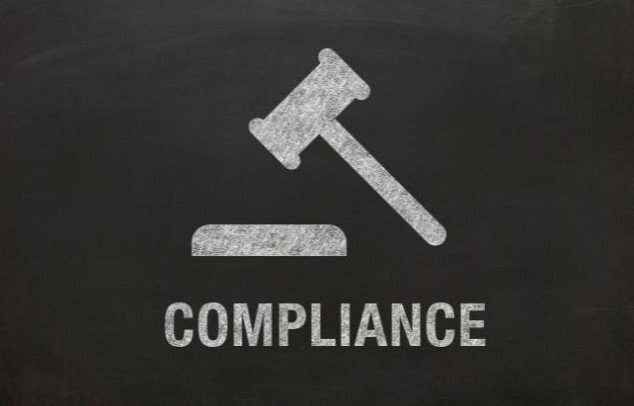

Legal and Compliance Considerations for E-commerce Sellers
Introduction
In the dynamic and ever-evolving landscape of e-commerce, legal and compliance considerations are critical for the success and sustainability of third-party platform sellers. Navigating the intricacies of laws and regulations ensures not only the smooth operation of your online business but also builds trust with customers and protects your brand reputation. In this comprehensive guide, we’ll explore essential legal and compliance considerations for e-commerce sellers, providing insights to help you stay on the right side of the law while thriving on popular third-party platforms.
1. Business Structure and Registration:
Ensure your e-commerce business is appropriately structured and registered, considering factors such as:
Business Structure: Choose a legal structure (e.g., sole proprietorship, LLC, corporation) that aligns with your business goals and offers liability protection.
Business Registration: Register your business with the appropriate authorities, obtaining the necessary licenses and permits to operate legally.
GET EXCLUSIVE ACCESS TO OUR EXPERTS THIRD PARTY PLATFORM SELLERS' TIPS AND ADVICE:
- Get AHEAD of the Competition.
- FREE Membership to Sarah’s Weekly Insiders secrets.
- FREE tailored resources and gifts.
- PLUS qualify to receive personal email support.

* We respect your privacy. We will not spam you.
2. Tax Compliance:
Understand and comply with tax regulations to avoid legal issues and financial penalties:
Sales Tax: Be aware of sales tax obligations in jurisdictions where you conduct business. Some platforms may provide tools to automate sales tax calculations.
Income Tax: Report and pay income taxes on your e-commerce earnings. Keep accurate financial records to facilitate tax filing.
3. Consumer Protection Laws:
Prioritize consumer protection to build trust and comply with relevant laws:
Clear Policies: Clearly communicate policies regarding returns, refunds, and product warranties. Ensure these policies align with consumer protection laws.
Truthful Advertising: Adhere to truth-in-advertising laws. Provide accurate product descriptions and avoid deceptive marketing practices.
4. Data Protection and Privacy:
Safeguard customer data and adhere to privacy regulations:
Secure Transactions: Implement secure payment gateways to protect customer financial information.
Privacy Policies: Clearly outline your privacy policies, explaining how customer data is collected, stored, and used.
5. Intellectual Property Rights:
Respect intellectual property laws to avoid legal disputes and protect your brand:
Trademark Registration: Consider registering trademarks for your brand and products to establish legal protection.
Avoid Copyright Infringement: Ensure your product listings, images, and marketing materials do not infringe on others’ copyrights.
6. Shipping and Fulfillment Compliance:
Comply with shipping and fulfillment regulations to meet customer expectations and legal standards:
Timely Shipments: Clearly communicate shipping times and meet deadlines to comply with consumer protection laws.
Customs Declarations: Provide accurate customs declarations for international shipments, adhering to customs regulations.
7. Accessibility Compliance:
Ensure your online store is accessible to all users, including those with disabilities:
ADA Compliance: Adhere to the Americans with Disabilities Act (ADA) by making your website accessible and providing alternatives for multimedia content.
User-Friendly Design: Optimize your website’s design and functionality for a seamless user experience.
8. Cybersecurity and Fraud Prevention:
Protect your business and customer data from cybersecurity threats:
Secure Website: Implement security measures such as SSL certificates to secure online transactions and customer information.
Fraud Prevention: Use fraud detection tools and adopt best practices to prevent fraudulent activities on your platform.
9. International Trade Regulations:
If selling internationally, understand and comply with trade regulations:
Export Restrictions: Be aware of export restrictions and compliance with laws governing the export of certain products.
Import Regulations: Understand import regulations in the countries you ship to, including customs duties and taxes.
10. Terms of Service and User Agreements:
Create comprehensive terms of service and user agreements to set expectations:
User Agreements: Clearly outline the terms users must agree to when using your platform, including rules for conduct and prohibited activities.
Dispute Resolution: Include clauses for dispute resolution and specify the governing law to avoid legal ambiguities.
Conclusion: Ensuring Legal Soundness for E-commerce Success
Navigating the legal landscape of e-commerce is crucial for the success and longevity of third-party platform sellers. By proactively addressing legal and compliance considerations, you not only protect your business from potential legal challenges but also foster trust with customers and enhance your brand’s reputation. Stay informed about changes in laws and regulations, regularly review and update your practices, and seek legal advice when needed. As you prioritize legal soundness, you’ll not only comply with the law but also create a foundation for sustainable growth and success in the competitive world of e-commerce.
MORE LIKE THIS...
Bringing you the latest information, ideas, products and services for your E-commerce business.
Copyright 2024 E-Market Pulse
Contact Us
We may receive compensation from partners listed through affiliate partnerships, at no cost to you. This doesn’t influence our ratings, and the opinions are our own
Subscribe to our Newsletter
Get updates on products and services specially targeted to help you succeed.
